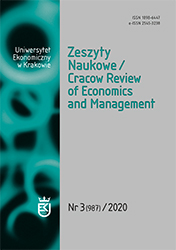Psychospołeczne aspekty pracy zdalnej. Wyniki badań przeprowadzonych w trakcie trwania pandemii COVID-19
Psycho-Social Aspects of Remote Work: The Results of Research Carried Out during the COVID-19 Pandemic
Author(s): Katarzyna Mierzejewska, Michał ChomickiSubject(s): Economy, Business Economy / Management
Published by: Wydawnictwo Uniwersytetu Ekonomicznego w Krakowie
Keywords: remote work; COVID-19 pandemic; work engagement; psychosocial aspects
Summary/Abstract: Objective: The aim of the article is to explore the psychosocial context of remote work. There is a particular focus on engagement and the inconvenience caused by a non-standard work format. Research Design & Methods: The study was conducted on a sample of 201 employees engaged in digital output and able work remotely. Findings: The study showed that non-remote workers exhibit greater vigour, dedication and absorption than those working remotely. The lack of social contact was recognised as the most significant drawback of remote work. Implications / Recommendations: Compared to standard work, long-term remote work can have a negative impact on individuals’ engagement in three dimensions – vigour, dedication and absorption. Contribution: The research results provide the basis for further exploration of psychosocial aspects of remote work.
Journal: Zeszyty Naukowe Uniwersytetu Ekonomicznego w Krakowie
- Issue Year: 987/2020
- Issue No: 3
- Page Range: 31-44
- Page Count: 14
- Language: Polish

